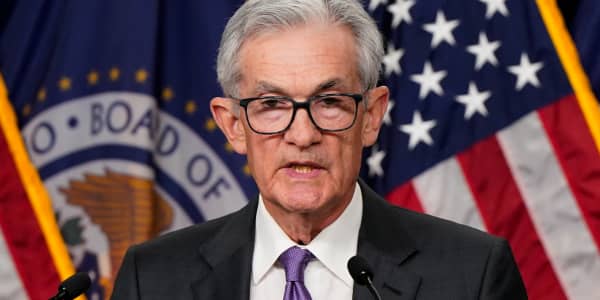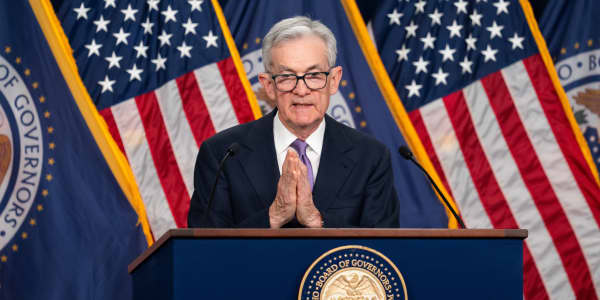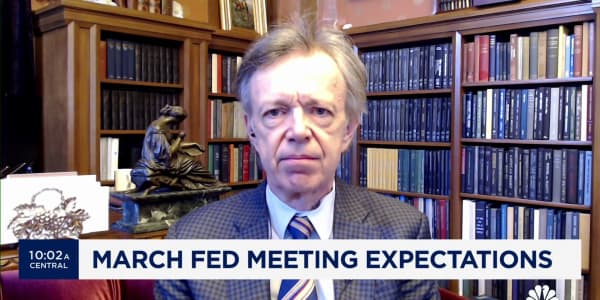Wall Street is nearly united in forecasting that Hillary Clinton will be the next president but divided over which candidate is best for the economy and the stock market.
By 80 percent to 15 percent, respondents to the June CNBC Fed Survey think Clinton will win the election, virtually unchanged from the April survey. When it comes to whose policies are best for the stock market, Clinton bests Donald Trump 38 percent to 25 percent. A large group, totaling 38 percent of respondents, say they don't know or are unsure. (Numbers have been rounded.)
But 45 percent of the 41 respondents, who include economists, fund managers and analysts, say Trump's policies are best for the economy, compared with just 30 percent for Clinton and 25 percent saying they don't know or they're unsure. That's a dramatic improvement from the 4 percent who backed Trump's economic policies in the last survey when John Kasich was Wall Street's clear favorite and Ted Cruz was also still in the running.
The bad news for Trump is that 65 percent of respondents picked one of the three Republican candidates, compared with just 45 percent now choosing Trump. So Trump has received the bulk of the support on the economy from the other Republican candidates, but he falls about 20 points short of getting all of it. Some appear to have gone to Clinton, whose economic approval on Wall Street has doubled to 30 percent. But a larger percentage of respondents are also now unsure whose policies are better for the economy.
In general, the group believes by a 35 percent to 23 percent margin that the best economic outcome is for a Republican to win the presidency. But Democrats have risen by 14 points compared with the April survey, while Republicans have gained just five. In this case, both sides benefited from a sharp decline in those who are unsure or don't know.
Wall Street overall says this presidential campaign is harmful to the economy, with 58 percent agreeing that it's negative for the outlook, 3 percent saying it's positive and 40 percent saying it has no effect.
"Continued high levels of negative campaigning between the two major party candidates are unlikely to be positive for the markets," John Roberts of Hilliard Lyons wrote in response to the survey. "Hopefully we will get some more positive rhetoric and specific policy proposals."
One area of concern for Wall Street is the potential for trade protectionism. Thirty-three percent of respondents say protectionist policies will be enacted if Trump wins, and 13 percent say they'll be enacted no matter who wins. Just over half think such policies will not be forthcoming.
"The push to inhibit trade, close borders, and [increase] regulation across a broad swath of industries are all a threat to growth in 2017," wrote Diane Swonk, founder of DS Economics. "The only policy offset is the realization by both sides of the aisle that corporate tax reform could bring money home and increase our competitive advantage."
The survey was conducted June 9-11.
The survey also found that 70 percent of respondents said the Federal Reserve is too concerned with market reactions to its monetary policy.





